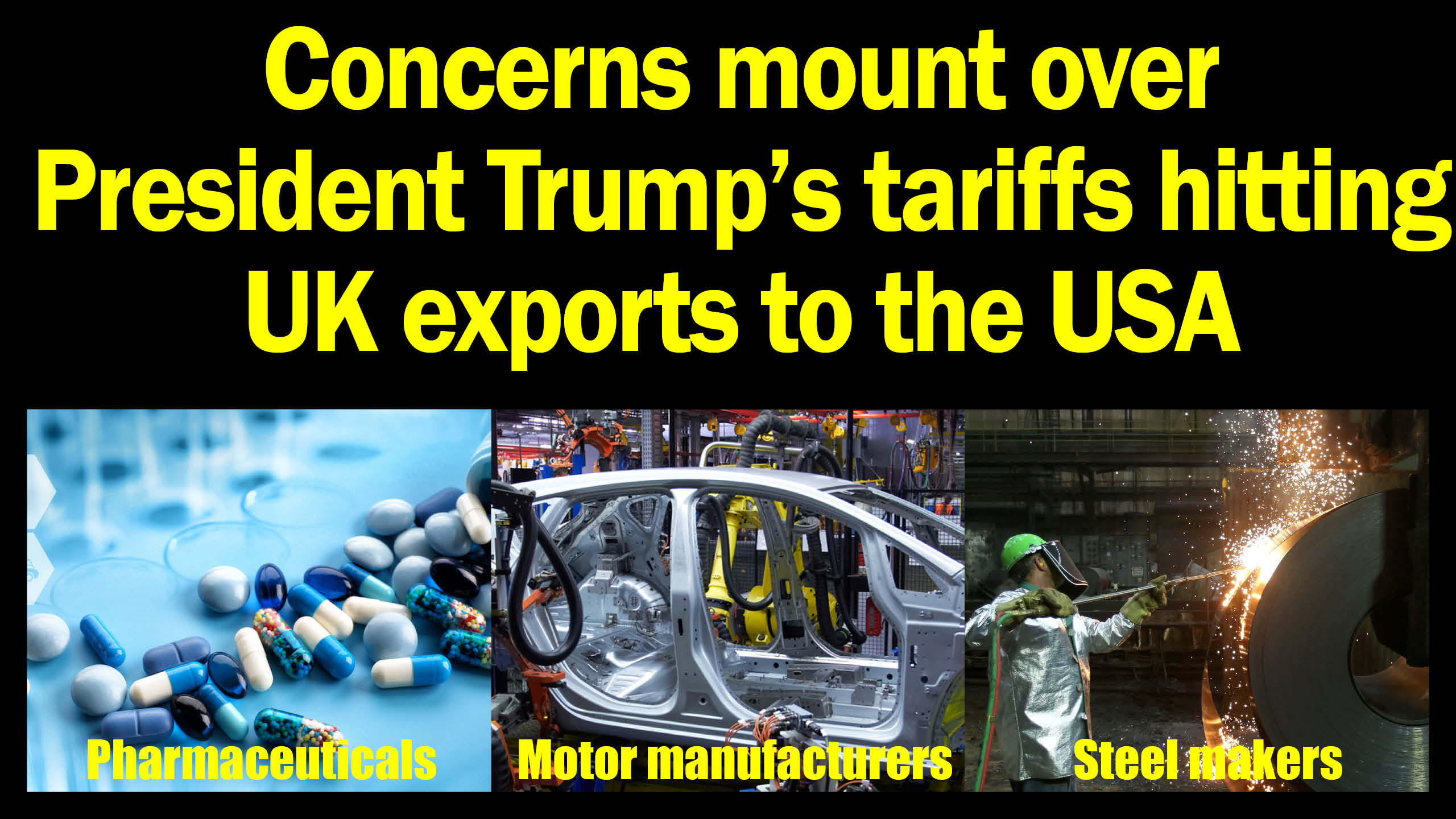By Harry Mottram: The world is coming to terms with the trade war that USA’s President Trump has launched since coming to power with a raft of tariffs that will hike the cost of importing goods America. In response to his Liberation Day stock markets around the world saw prices fall – with a modest rally 48 hours later as rumours of a compromise or negotiations could see the tariffs modified. The People’s Republic of China – the world’s second largest economy took a more hardline view with plans to match the tariffs in a tit for tat trade war.
Britain’s Prime Minister Kier Starmer has taken a less confrontational view and has sort to negotiate a trade deal that would soften the 10% tariff imposed by Washinton. Whether this policy works remains to be seen but whatever happens now confidence in America has been damaged as Governments across the globe don’t know what President Trump will say or do now.
Ian Carrotte of ICSM Business in Bridgwater said the one thing economies need is stability. He said: “If you take the UK’s main exports to America for example – machinery, cars and pharmaceuticals – there’s a question that with a tariff imposed on arrival – will people and firms in the USA be willing to pay the increased cost. A Range Rover for instance with a 10% price hike – far above inflation – will no longer be so attractive to a buyer than it was in 2024. Already Jaguar Land Rover have paused all shipments to America since initially they carry a 25% tariff. That level of tax kills stone dead most car sales in the USA from the UK. If it is 5% or 10% then it may still be viable to ship them but the idea that the UK will buy American cars in bulk is unrealistic. Size and fuel economy make them unattractive to most people with our narrow roads and high fuel tax. The UK Government is right to take a cautious approach and see how things pan out as it is the accepted wisdom that a lower tariff will be negotiated eventually.”
The pharmaceutical industry exports some £9 billion pounds worth of goods to the USA every year and clearly tariffs will hit the UK sector as 25% would make them unviable. However, two the UK’s heavy weights AstraZeneca and GlaxoSmithKlin have manufacturing centres in America which would allow them to escape some of those costs.
Ian Carrotte said manufacturers of machinery are already concerned. He said: “So many products shipped across the Atlantic have a big steel component for defence, aerospace and other high-quality products which will attract 25% tariffs if those are kept in place. It would be impossible to immediately find new markets overnight so it is a question of wait and see if these tariffs are permanent. Some members of ICSM are taking the long view and saying that sooner or later the rules will change and in four years’ time a new administration could return the USA to a free trade agreement.”
+++++++++++++++++++++++++
ICSM CREDIT
For information on ICSM visit www.icsmcredit.com or call 0844 854 1850.
ICSM, The Exchange, Express Park, Bristol Road, Bridgwater, Somerset TA6 4RR. Tel: 0844 854 1850. www.icsmcredit.com. Ian.carrotte@icsmcredit.com

